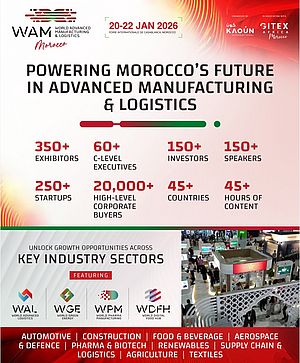Energy efficiency investments are the most cost-effective way to reduce the EU's reliance, and expenditure, on energy imports costing over €400 billion a year. Today, this makes energy efficiency investments strategically important due to high levels of energy imports, energy price instability and the need for Europe to transition to a competitive low carbon and resilient economy. Energy efficiency investing has the key role to play in the transition towards a more competitive, secure and sustainable energy system.
The Energy Efficiency Financial Institutions Group (EEFIG) has recently launched its final report "Energy Efficiency - the first fuel for the EU Economy: How to drive new finance for energy efficiency investments". This report is the result of 16 months of work of over 120 active participants representing finance, policy makers, the buildings sector, industry, SMEs and energy efficiency market participants forming EEFIG - an expert working group co-convened by the European Commission and UNEP Finance Initiative (UNEP FI). EEIP participation was led by the Chairman of EEIP financing working group, Rod Janssen.
In its report, EEFIG identifies the critical success factors, policies, market instruments and financing solutions to increase energy efficiency investments in Europe in the buildings, industry and SME sectors.
Of this report, European Commission Vice President, Maroš Šefčovič said the following: "Investing into energy efficiency measures in buildings, industry and in SMEs is fundamentally important for Europe. I will strive to ensure that energy efficiency investment financing is looked at in our forthcoming policies and that this Report will be used as inspiration for our further work."
Under Secretary-General of the United Nations and Executive Director of UNEP, Achim Steiner underlines that: "Scaling up energy efficiency investment has become an economic imperative with a strong social, environmental and competitive rationale. And while European industry remains a global leader in energy efficiency, investment flows in the sector remain sub-optimal. Only half of the estimated 60 -100 billion Euros annual investment required to achieve Europe's 2020 energy efficiency targets in buildings is being met.
The joint efforts by the EU and UNEP's FI to build a healthy dialogue among stakeholders and disseminate know-how, has the potential to unleash private investment to the scale required to meet future ambitions and obligations." Banks and long-term investor members of EEFIG also welcomed the report: Urs Rohner, Chairman of Credit Suisse Group AG said "Our research demonstrates that Europe can probably save another 10 to 15% of energy by 2030 with appropriate energy efficiency measures.
Energy efficiency investment benefits Europe's environmental as well as economic growth targets by conserving resources and reducing costs. We see investor interest in energy efficiency escalating rapidly in particular around the transition to sustainable buildings, with great opportunities ahead for green building-related businesses". Fostering energy efficiency investments is a driver of competitiveness, economic value, innovation and employment across the European Union.
The benefits are:
- Strong economic, social and competitive rationale for the up-scaling of energy efficiency investments in buildings and industry in the EU;
- Boosting both the drivers of demand for and supply of energy efficiency investments in buildings and industry sub-segments offers a strong economic opportunity
- Whilst there is no single solution, EEFIG identifies a framework of cross-cutting measures as well as individual requirements to support investments for each market segment, while noting national differences especially in low income countries;
- In its analysis of the different tools and approaches, EEFIG identifies those which can be led by market stakeholders and those which must be policy-led. Both require work in parallel to deliver the targeted increase in energy efficiency investments;
- For buildings and industry EEFIG develops separate analysis and recommendations to policy makers and market participants to increase energy efficiency investment rates and flows;
- EEFIG concludes by highlighting seven key themes which emerge from both buildings and industry and SME analysis and provide the European Commission with final recommendations for its consideration.
The European Fund for Strategic Investments (EFSI) should put energy efficiency first. In Europe general investment levels are around 15% below their 2007 peak and Europe's new Investment Plan aims to address this. EFFIG's findings support the Plan's position that there is no single or simple answer to how to boost growth and that addressing both the demand and supply sides of the economy is required.
Member States have a clear role to play in pursuing the necessary structural reforms, exercise fiscal responsibility, provide regulatory certainty and boost investment in support of jobs and growth.
Oil and Gas Price Volatility offers an Opportunity to Build Resilience The dramatic fall in the oil price, and its likely impact in lower European gas prices, well highlights the need for Europe to have buildings, industry and SMEs whose competitiveness and running costs are better iprotected from the uncertainties and volatility created by commodity price shocks.
EEFIG sees lower oil and gas prices as providing a welcome window for policy makers to enforce existing regulations, use fiscal tools to incentivise energy efficiency and reduce distorting "volume purchase" subsidies (where relevant) and recycle those funds into greater support for energy efficiency, resilience and long-term competitiveness investments.
By Peter Sweatman, Energy Efficiency Financial Institutions Group (EEFIG)





























































